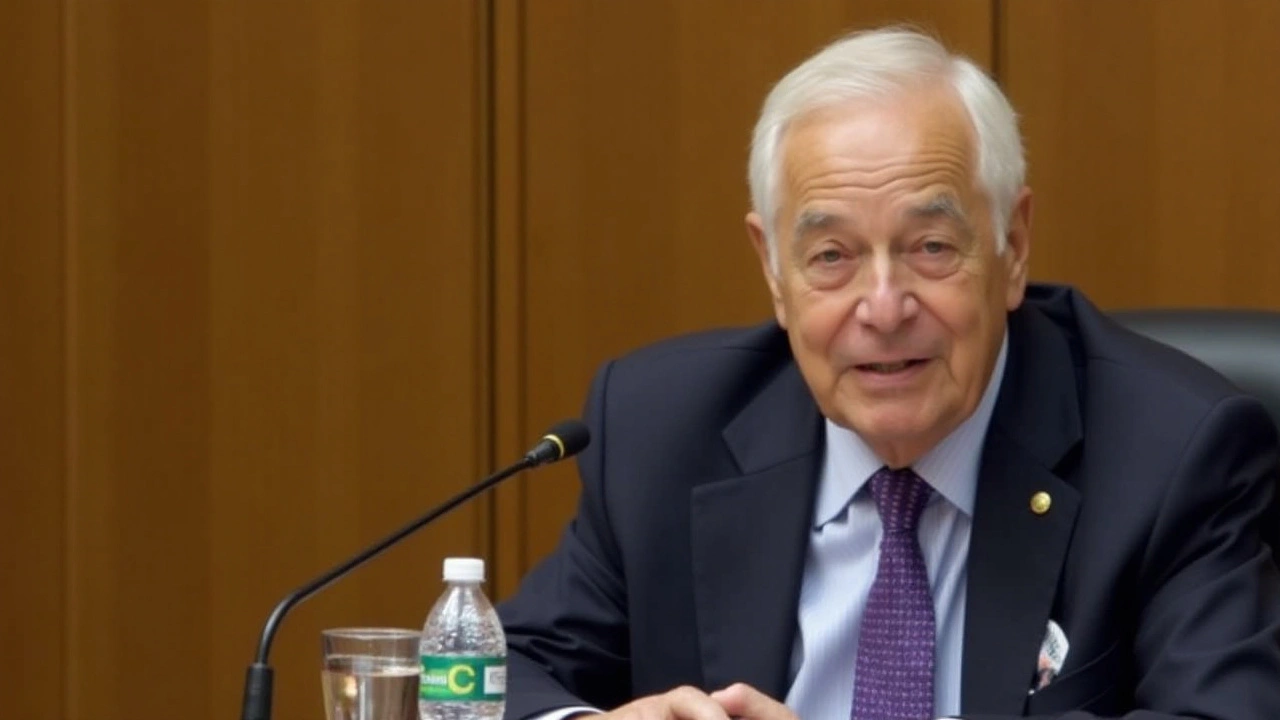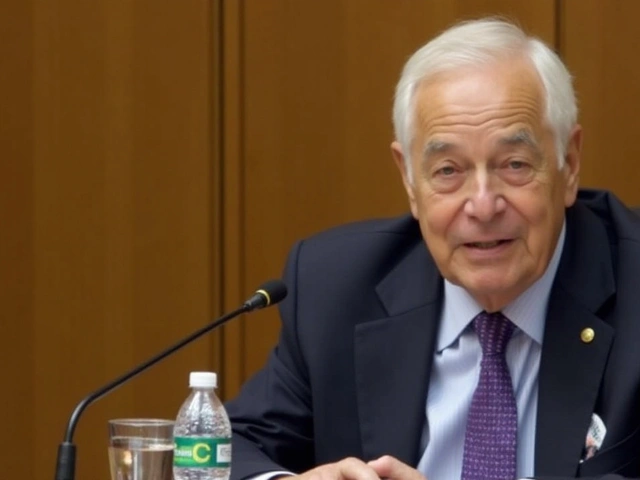Nairobi High Court Clears Path for Gachagua Impeachment Amid Intense Legal Battle
The political landscape in Kenya has been rocked by a recent decision from the High Court in Nairobi, allowing the impeachment process against Deputy President Rigathi Gachagua to continue. At the heart of this legal drama are multiple petitions filed by former UDA Secretary General Cleophas Malala, Caroline Wambui, and the lobby group Sheria Mtaani. These parties have challenged the impeachment motion, claiming it lacks the essential component of public participation. Additionally, they argue that both the National Assembly and Senate do not meet the constitutional mandate of a two-thirds gender representation, which is a crucial requirement under Kenyan law.
The petitioners contend that the current makeup of Parliament fails to adhere to the two-thirds gender principle, as outlined in Articles 27(8) and 81(b) of the Constitution. This principle is not just a technicality but a fundamental aspect of ensuring equal representation and non-discrimination. Malala, represented by his lawyer Mwenda Njagi, argues that this failure significantly undermines the legitimacy of Parliament. They assert that it violates the constitutional rights of Kenyan women, stripping them of their right to equality and freedom from discrimination. The argument brings to the forefront critical issues of gender representation in governance, making this case far more than just a political tussle—it's a question of constitutional adherence and social justice.
Judge Bahati Mwamuye, who is presiding over the case, has certified the petition as urgent, underscoring the gravity of the allegations. However, he declined to issue interim orders to halt the impeachment motion. This decision has allowed the parliamentary proceedings to continue while the court prepares for an expedited hearing. Judge Mwamuye has ordered that the petition be served on all respondents, including the National Assembly and Senate, by the close of business on September 30, 2024. The timeline is tight, with respondents required to file their responses by October 3, 2024, and the petitioner allowed to file a rejoinder by October 4, 2024. The matter is set to be mentioned in court again on October 7, 2024, for further directions.
Allegations Against Deputy President Gachagua
The impeachment motion against Gachagua is fueled by a series of serious accusations. One of the primary charges is the violation of Article 10, which outlines the National Values and Principles of Governance. Gachagua's public utterances have been labeled as inciteful, reckless, and inflammatory. His accusers argue that these statements have the potential to stir ethnic hatred and balkanization. This allegation is not to be taken lightly, as ethnic tensions have been a recurring issue in Kenya's political landscape.
Beyond inflammatory speech, Gachagua is also accused of violating multiple articles—147, 148, 174, 186, and 189—that speak to his conduct and responsibility as the principal assistant to the President. These articles collectively address the roles and responsibilities of someone in Gachagua's position, emphasizing integrity, unity, and public service. The nature of these violations suggests a fundamental breach of the duties expected from the Deputy President.
Financial misconduct also forms a significant part of the accusations. Gachagua is accused of corruptly and unlawfully acquiring assets using taxpayers' money. These allegations bring into question his adherence to national and international laws, including the National Cohesion and Integration Act, the Anti-Corruption and Economic Crimes Act, the Proceeds of Crime and Anti-Money Laundering Act, the Penal Code, and the Leadership and Integrity Act. Corruption has long been a sore point in Kenyan politics, and this accusation strikes at the heart of public trust in elected officials.
The proceedings have garnered significant public and media attention, making it a landmark case in Kenyan politics. The court's decision to allow the process to move forward while expediting the hearing speaks volumes about the seriousness with which these allegations are being treated. The decision not only impacts Gachagua but also sets a precedent for how impeachment processes might be handled in the future, especially with regard to constitutional compliance and public participation.
Gender Representation and Its Implications
The requirement for a two-thirds gender representation in Parliament is more than a statutory obligation—it's a reflection of Kenya's commitment to ensuring equality and non-discrimination. Articles 27(8) and 81(b) of the Constitution mandate this representation to promote inclusivity and gender balance in governance. The current petitions argue that without meeting this requirement, the National Assembly and Senate lack the constitutional mandate to carry out an impeachment process.
Malala's petition emphasizes that the failure to meet the two-thirds gender principle not only undermines the legitimacy of Parliament but also violates the constitutional rights of Kenyan women. This argument brings to the forefront critical questions about gender representation in the country's highest legislative bodies. It challenges the status quo and calls for a reevaluation of how gender balance is implemented and maintained in governance. The outcome of this case could have far-reaching implications, potentially prompting a reassessment of gender representation across various levels of government.
Judge Mwamuye's certification of the petition as urgent indicates the court's recognition of the gravity of these issues. While the decision to allow the impeachment process to continue might seem procedural, it underscores the importance of addressing these constitutional concerns. The expedited timelines for filing responses and rejoinders reflect the court's commitment to resolving this matter swiftly, ensuring that justice is not delayed.

What Lies Ahead
As the impeachment process moves forward, all eyes will be on how the court addresses the intertwined issues of constitutional compliance, public participation, and gender representation. The hearings scheduled for October 7, 2024, will be pivotal in determining the course of this case, potentially setting a precedent for future impeachment processes. The court's final decision could impact not only Deputy President Gachagua's political career but also the broader landscape of Kenyan politics.
Public opinion remains divided. Supporters of Gachagua argue that the impeachment is politically motivated, aimed at discrediting a prominent figure in the government. Opponents, however, see it as a necessary step towards upholding constitutional principles and ensuring accountability. The court's handling of this case will be closely watched, with each development scrutinized for its implications on governance and rule of law.
In the coming weeks, the debate over Gachagua's impeachment is expected to intensify both within Parliament and in public discourse. Lawmakers will be required to navigate the complex interplay of legal, constitutional, and political factors as they consider the merits of the motion. The involvement of the judiciary adds an additional layer of complexity, highlighting the checks and balances inherent in Kenya's political system.
Ultimately, the Gachagua impeachment case serves as a reminder of the vital role that constitutional principles play in guiding the actions of public officials. It underscores the importance of maintaining gender balance, ensuring public participation, and upholding the values of integrity and accountability. As the process unfolds, it will be a test of Kenya's commitment to these principles and its ability to address the challenges of governance in a rapidly evolving political landscape.


